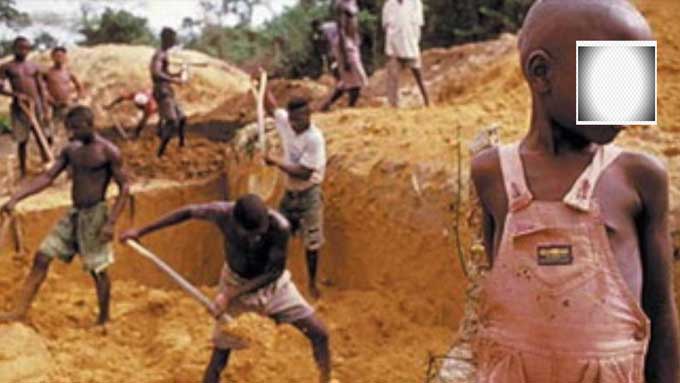
BY GEORGINA SOKO YOLISWA Dube recoils in fear as her employer lashes at her for daring to ask about her salary.
The 13-year-old Grade 7 dropout from Simatelele in Binga had gone for five months without pay.
She was brought into the mining town of Hwange by a family friend at the height of the Covid-19 pandemic in 2021 to work as a maid, and was promised a US$25 monthly salary.
“I was forced by poverty and pressure from my grandmother whom I lived with to look for a job in Hwange,” Dube said.
“Being the eldest girl, I had no choice but to shoulder the weight of looking after my two siblings as young as I am.”
Jonathan Dete* (14) from Makwandara area, some 50km from Hwange also tells his story of how he would slowly descend down a 64-metre deep mine shaft with only a torch and pick.
His two colleagues aged 13 and 19 years helped lower him before they joining him in search of the tantalite mineral.
Dete and his 13-year-old friend, Makomborero (surname withheld) were ‘trafficked’ from Ngundu, Chivi district under Masvingo province after their families were told they would earn US$400 per month.
- Chamisa under fire over US$120K donation
- Mavhunga puts DeMbare into Chibuku quarterfinals
- Pension funds bet on Cabora Bassa oilfields
- Councils defy govt fire tender directive
Keep Reading
“At one point we indicated that we could not continue and wanted to leave but they coerced us to stay after giving us US$50 with a promise to give us more,” Dete said.
“We have been planning to run away but the problem is we need money to get back home,” Dete says.
The long-lasting effects of the Covid-19 pandemic on the economy have left children in Matabeleland North having to contend with deeper poverty and recent trends of child labour as more families struggle to make ends meet.
Last year, the World Bank said the outbreak of Covid-19 had pushed a staggering 1.3 million Zimbabweans into extreme poverty.
To cope with job losses, some families are forced to send children to look for jobs.
Zimbabwe’s laws such as the Labour Act prohibit employers from hiring a person under the age of 18.
The country has ratified a number of international conventions concerning child labour with the central government having established institutional mechanisms for the enforcement of laws and regulations on child labour.
Child psychologists say child labour has far-reaching effects on the development of children as they tend to miss out on education and other childhood activities.
Child rights activist, Anna Mandizha-Ncube said there was need for comprehensive policies that cover all sectors of child protection.
“It is unfortunate that as parents we don’t see anything wrong especially given that culturally, the involvement of children in the family economy is generally regarded as acceptable,” Mandizha-Ncube said.
The Vendors Institute for Social and Economic Transformation in Zimbabwe has previously said over 20,000 children have turned to vending as a means of survival since the Covid-19 outbreak.
“This is driven by the misplaced notion by parents that it’s a way of training the children to become more responsible adults,” Mandizha So there is need for a deliberate mind-set change on Zimbabweans on the role of children in the society,” Mandizha-Ncube adds.
According to Unicef, of Zimbabwe’s 1.3 million orphans, some 100,000 are living on their own in child-headed households.
Many such children are forced to leave school and find work as street vendors or labourers on tobacco farms, tea and sugar plantations, and in mines in order to support younger siblings.
“There should be an expansion of social policy programmes to cover more people by central government through increasing the social protection budget to cater for growing numbers of families with children in need,” Mandizha-Ncube added.
- Not real names
- This article was originally published by The Citizen Bulletin, a non-profit news organisation that produces hard hitting hyperlocal reporting and analysis for south western region of Matabeleland.










